
"I welcome it when people get angry at me." - Eric Nalder, investigative reporter
Pacing back and forth in front of the audience, a tired looking Eric Nalder discussed "Loosening Lips: the Art of the Interview." 'Loosening Lips' is basically a list of tips divided into three sections: the set up, reluctant people and getting all the goods.
From his laid-back, casual demeanor, and his rather expressionless face and single toned voice, one wouldn't expect Nalder to be a particularly engaging speaker. But the crowd, including myself, seemed to pay attention to everything he said. Plus, he has been reporting for 37 years and teaching workshops for 20 plus years (in five different countries), so obviously his workshops are popular and in demand.
During the workshop, Nalder covered everything from the more difficult tasks like "hypnotizing" an interviewee to the simple things like remembering to ask a source, "How did you know that?" The latter tip immediately brought to mind a recent interview I did with someone from the financial aid office who gave me a few statistics, but I never asked him the source of that information. I'm sure the numbers are correct, but the source where he got those numbers could lead me to more information. Even better, I wouldn't have to use the word "said," but could instead attribute the information to its actual source.
Exemplifying loose lips, Nalder had begun the workshop by telling a story he wrote about a guy named Gary, who basically "stole" houses. As he tells the story, one can see how Nalder took over Gary psychologically. The source who had initially said he would never talk could now not shut his mouth.
Because the document is available online, I won't go into detail about the tips, but one of them I found interesting was for a reporter to quiet his or her ego. He said this is one of the greatest obstacles facing reporters, particularly young journalists. To help quiet one’s ego, he recommended organizing notes and doing background on the issue and interviewee. He said meditating, or the process of thinking about nothing, also helps, along with filling yourself with the vision of a good interview.
Another problem young journalists have, he said, is listening for logic. For example, a reporter might skip over a piece of information or not ask about it in fear of sounding ignorant. This also ties in with the ego thing.
"There are no embarrassing questions, only embarrassing answers," Nalder said.
Then there's the tip, "Use What You Think You Know." For example, instead of asking a source if they did something, ask them why they did it even if you don't have it confirmed.
I had mentioned in my previous post that I had never really thought about the way I conduct interviews, but the workshop definitely made me want to hone my interviewing skills.
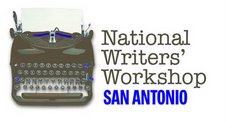

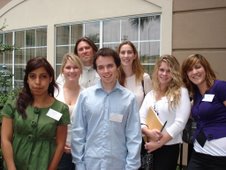

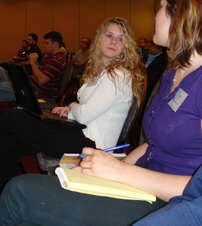
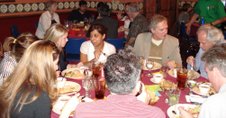

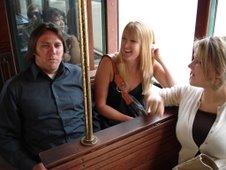

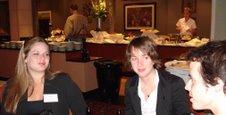
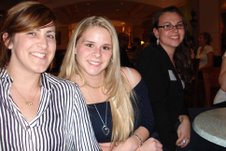
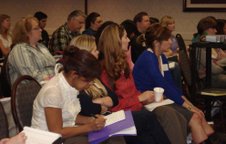

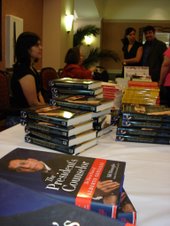
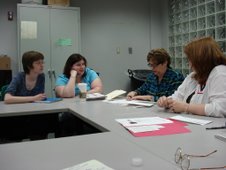

1 comment:
I'm glad you could make the conference, Nick. Sounds like you're learning a lot!
Sue
Post a Comment